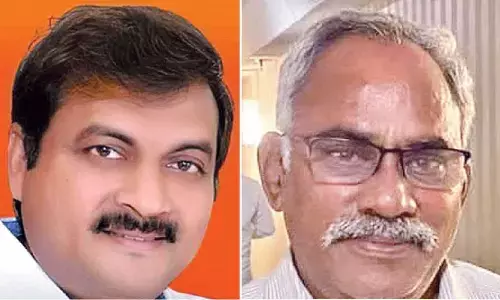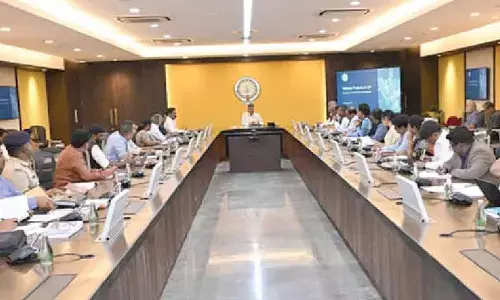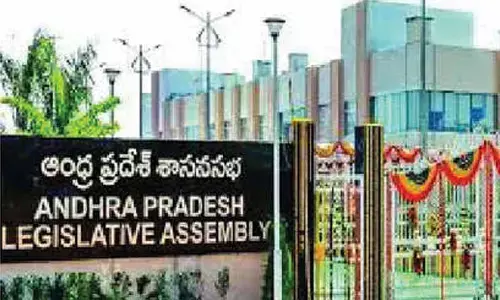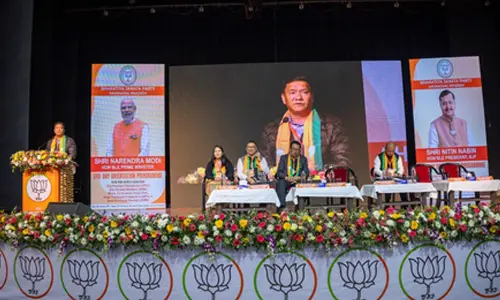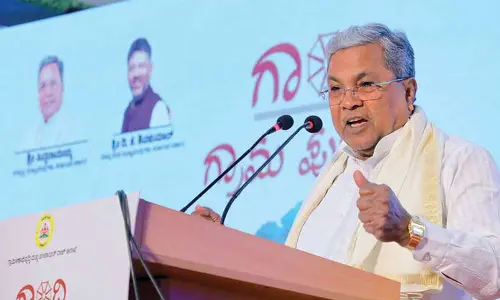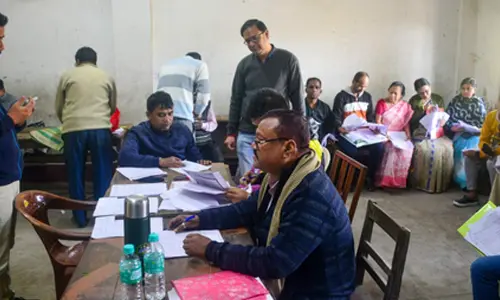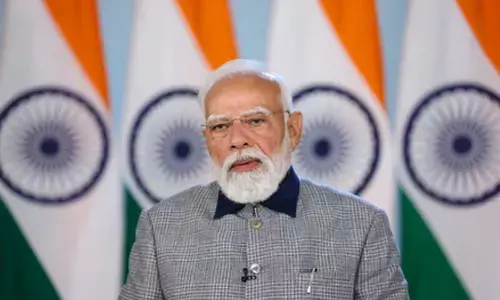Political parties lack transparency, accountability

Political Parties Lack Transparency, Accountability. We saw two political parties arising on the horizon of elections in Andhra Pradesh after it was divided. Why some persons establish a political party before elections
We saw two political parties arising on the horizon of elections in Andhra Pradesh after it was divided. Why some persons establish a political party before elections, without contesting elections? A voter will not get a correct answer to this question. People might assume that a political party which does not contest elections would be a useless one. In reality that is very useful because they can collect lot of money with a facility not to disclose and benefit of not paying tax. None love the country more than money. Innocent people and gullible mad crowd of fans are fooled by villains who act like cinema heroes.
None could imagine that Lord Krishna could make an untruthful statement. He said that which is born will die. Bhagawadgita forgot about one vital thing that takes birth but does not die, i.e., political party. For every contract there is an exit clause. But once a political party is registered with Election Commission of India, it cannot disappear except by way of merger. Unfortunately there is no provision for deregistration of a defunct or criminal political party and ECI has no power to deal with such political parties. Pathetic indeed! Once born, the party will not die.
Article 19 of our Constitution provides a fundamental right to freedom to form association. Anyone can enter into any association or political party or form his own party or association etc. Only restriction possible is that the association or union should maintain the sovereignty and integrity of India. Political party means an association of people. It is neither a society nor a company. Then what is that. None knows. It is Brahma Padartha, perhaps. It is mandatory for any political party to get registered as per Article 29A (1) and (2) of the Representation of the People Act (RPA), 1951. Any association or body of individuals of India calling itself a political party should apply to the ECI for its registration as a political party, within thirty days following the date of its formation.
Article 29A (5) of RPA requires that the application shall be accompanied by a copy of the memorandum or rules and regulations of the association or body, wherein the association or body shall affirm true faith and allegiance to the Constitution. Further sub-section (7) of section 29A provides the required stringency to the above provision by stating that no association or body shall be registered as a political party under this section unless the memorandum or rules and regulations of such association or body conform to these provisions, i.e. the provisions of sub-section (5) of section 29A. The decision of the Commission in this matter is final.
There are three important provisions which impose accountability.
1) Section 29C of the RPA made it mandatory for all registered political parties to submit an annual report to the ECI on all contributions in excess of rupees twenty thousand, without which no political party would be eligible for any tax relief provided to political parties under the RPA.
2) The ‘Guidelines and Application Format for Registration of Political Parties under section 29A of the Representation of the People Act, 1951,’ issued by the ECI which under the Article VIII of rule 3(i) and under the rule 3(xix) lays down clearly the mandatory requirement for all political parties to submit its audited annual financial statement to the ECI. 3) The sub-section (6) of section 29A of the RPA provides that the ECI may call for such other particulars as it deem fit from the association or the body making the application for registration as political parties.
Let us look at the compliance of these provisions which reveal the irresponsibility and lack of response to accountability of political parties. In response to RTI questions from the Public Interest Foundation (PIF), an NGO, the ECI revealed that only 98 registered parties out of a total of 1,196 registered parties submitted their annual report regarding contributions in excess of Rs.20,000 under Sec 29© of RPA, which means the compliance was mere 8%.
The defaulting parties should not get exemption from tax and ECI has not recommended any action against these parties to the Income Tax Department. People have a right to know who defaulted and what action was taken against them, at least during elections before they decide to vote.
Second RTI question was about compliance of Article VIII of rule 3(i) and rule 3(xix) of Guidelines regarding submission of Annual Audited Financial Statement within six months from the end of each financial year. Out of 1196 parties only 175 complied with this in 2011-12, which means 85% did not comply with this provision. What did ECI do? What can ECI do? Nothing. ECI is neither powerful as there is no law that gave penal powers to them, nor efficient as it did not use the powers of at least questioning or exposing the accountability and reporting defaults of political parties.
As there are no consequences for the crimes or defaults, the parties develop impunity which became immunity to political parties. Now political parties think that they are above law and not answerable to the people.
Powers of ECI
Whether ECI is a regulatory or a quasi judicial body that can look into the defaults of the parties? Strangely the ECI do not have any penal powers. It can register a political party on certain conditions like allegience to Constitution. But it cannot de-register a party when it deviated from the Constitution. While exercising its power to register a political party under section 29-A of the Act, acts quasi-judicially but once a political party is registered the ECI has no power to review the order registering a political party for having violated the provisions of the Constitution or for having breached the undertaking given to the ECI at the time of registration.
In fact the ECI had power to deregister but only conditions such as: a) when it is found later that a party has obtained its registration through fraudulent means, or b) it was declared by the Government as unlawful, or c) when a party itself intimated the Commission that it had ceased to function or had changed its party constitution, or d) would not function in accordance with the provisions of the law.
There are inherent powers in ECI to deregister which can be read into the powers of registration. But no ECI has exercised those powers so far. For instance parties which did not subscribe to secularism, socialism and democracy or indulged in seeking votes on communal lines may be denied registration by the ECI, but they are still not barred from contesting elections.
Instead of invoking their inherent powers the ECI sought in 1998 some powers to deregister which was not granted by NDA or UPA governments. No political party talks about it in their manifestos. People do not know and do not demand.
The writer is Central Information Commissioner and can be reached at [email protected])








